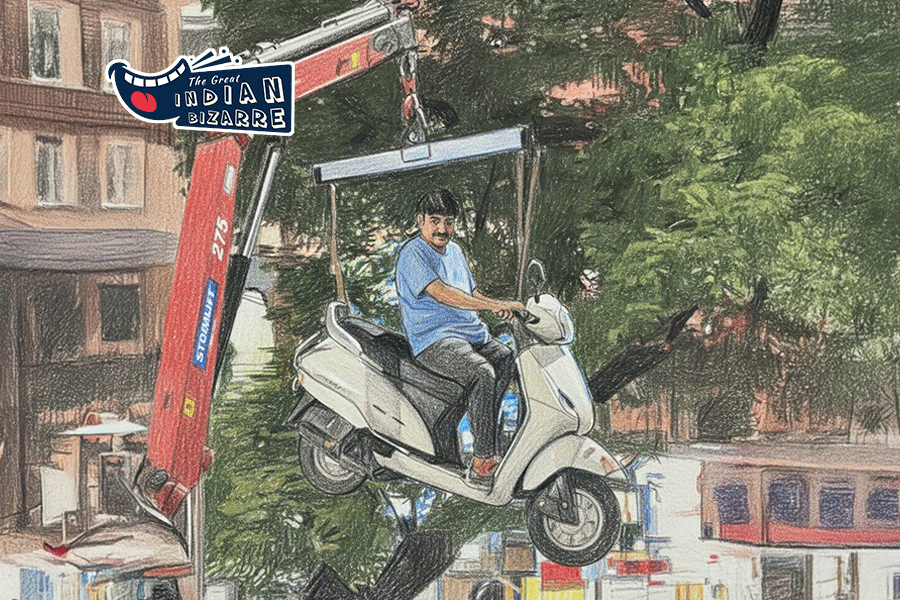 |
| On your guard: Make sure you are aware of the terms and conditions of your medical insurance policy |
When he turned 30, Calcutta-based leather-goods exporter Dilip Mitter decided to invest in a medical insurance policy. “I held a high-stress job and my lifestyle ? with regular late nights and junk food ? wasn’t exactly healthy,” he explains. “So a medical emergency ? such as a heart attack ? couldn’t be ruled out. And with reports of more and more younger people becoming victims of ailments earlier associated with age, I didn’t want to take a chance. A medical insurance policy gave me a sense of security in that if there was an emergency, I wouldn’t have to worry about the cost of hospitalisation, treatment etc.”
But four years later, when he actually suffered a mild attack and had to be hospitalised, getting his insurance claim ? he was entitled to a risk cover of Rs 2,00,000 ? wasn’t as easy as he thought it would be. “I was livid. For four years I paid premiums of over Rs 6,000 (Rs 1,500 each year) and now they were refusing reimbursement.”
But what Mitter failed to take into consideration was that he was unaware of the rules and regulations, terms and conditions of the insurance company, which had a set of stringent regulatory measures to assess the credibility and eligibility of insurance money claims.
In short, he failed to read the fine print. “I thought that by just paying my premiums on time, all my medical expenses would be taken care of, provided that they didn’t exceed the agreed amount of risk cover. But I was mistaken,” he exclaims.
This is not a one-off case. According to experts in the field of medical insurance, including insurance providers, agents and lawyers, it is not uncommon for consumers to complain about not being able to recover insurance money. But as Prabir Basu, working president of the Bengal Federation of Consumer Organisations, points out, “In many cases, it is a result of consumers being unaware of the rules governing eligibility to claim insurance money.”
Says Samir Dey, medical and life insurance agent, associated with the eastern region office of New India Assurance Company, who handled Mitter’s case, “In India, the practice of regular physical check-ups is not that popular. This becomes a problem while claiming insurance as latent diseases come to the fore.” When Mitter signed up for the medical insurance policy, he didn’t know that insurance companies held the right to deny claims in certain cases, such as congenital defects. At the time of signing up for an insurance plan, the person buying the plan (referred to as the buying ‘party’) is expected to declare his/her medical history in terms of chronic ailments, congenital disorders and so on. “Mitter was unaware of his congenital heart condition ? a defective valve ? which was only identified after the heart attack, during the course of different types of tests. This disqualified the ‘party’ from receiving insurance money because one of the eligibility criteria is that the medical condition for which the party is being treated and cost-reimbursed should not have existed in the past,” explains Dey.
But all isn’t lost. In fact, taking Dey’s advice, Mitter wrote a letter to the insurance company, asking it to “consider the claim as a medical emergency” since the congenital condition did not give rise to any physical or medical problems earlier, and therefore did not amount to a past medical condition. Eventually, Mitter did receive reimbursement.
“Though cost for treatment of pre-existing diseases are not reimbursed, individual cases are assessed,” points out Dr R.K. Kaushik, manager, corporate office, at the Mumbai head office of New India Assurance Company, a subsidiary of General Insurance Corporation of India. “But very often consumers are not aware of the technicalities of a medical insurance claim, believing that all medical expenses are covered by their insurance policies. Therefore, there is some confusion. But cases are treated on an individual basis.” New India Assurance has now introduced the system of ‘third party administrator’ which is an independent body, responsible for monitoring the credibility and eligibility of claims. “This is to prevent misuse of insurance money and identify genuine claims,” states Dr Kaushik.
“There are certain common consumer confusion areas as far as a claim is concerned,” says Dr J.H. Rusat, head of the department of public complaints at the Mumbai head office of New India Assurance Company. These include seeking cost reimbursement for treatment of cases of chronic ailments or congenital defects; applying for reimbursement even though they don’t fulfil the eligibility period of at least 24 hours hospitalisation (there are some exceptions to the 24-hour-hospitalisation rule, like eye implant, though); or applying for reimbursement before the stipulated time.
Dey points out another common cause for claims being refused. He explains, “Consumers often try to avail the benefits of a cash-free card (an option provided by the medical insurance company so that the patient doesn’t have to make any initial payments, as they would have had to do earlier). But what they don’t bother to find out is that they can only get the benefit if they check into specific hospitals, clinics or nursing homes, listed in the insurance card.”
So if you are thinking of getting yourself a medical insurance policy, make sure that you read not just the instructions but also between the lines.
health wise
There are certain diseases, the treatment costs of which do not qualify for insurance claim. These include the treatment of conditions (such as pain in the liver) induced by alcoholic or drug addiction (a doctor’s prescription usually reveals a patient’s dietary and lifestyle habits, on the basis of which insurance companies assess cases); ailments and diseases which have physical manifestations over a period of time and if the person was afflicted with the disease at the time of signing up for the policy. As Dr Shuvam Chakraborty of Escorts Heart Institute and Research Centre, Delhi, points out, “With modern equipment, it is possible to both diagnose a disease as well as determine its history.”











